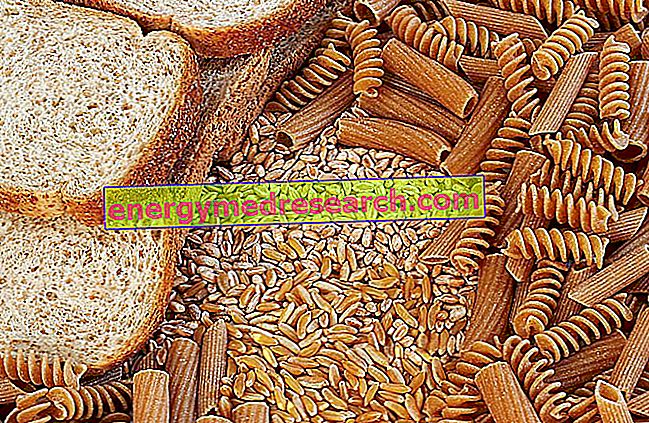RILATEN ® is a rociverine-based drug
THERAPEUTIC GROUP: Spasmolytics / drugs for disorders of intestinal function
IndicationsAction mechanismStudies and clinical effectiveness Usage and dosage instructionsWarnings Pregnancy and lactationInteractionsContraindicationsUndesirable effects

Indications RILATEN ® Rociverina
RILATEN ® is effective in the symptomatic treatment of spastic-painful manifestations affecting the gastro-enteric, uro-genital and biliary tract.
Mechanism of action RILATEN ® Rociverina
RILATEN ® administered orally or rectally - is effectively absorbed in the gastro-intestinal tract, distributed in the various anatomical districts without accumulation and subsequently excreted via the urine. The spasmolytic action of RILATEN ® is due to the presence of its active ingredient Rociverine, which combines an important myotropic effect with a neurotropic one. Experimental evidence, in fact, underlines how the rociverine can exert a papaverino-like muscle relaxant action (inhibition of the intracellular mechanisms of cellular contraction), directed exclusively towards the smooth muscle fibrocells of the gastro-enteric and uro-genital apparatus, maintaining unchanged the vascular function and at the same time carrying out an anticholinergic action (through competition with acetylcholine at the level of muscarinic receptors, responsible for the violent and prolonged contraction that characterizes the spasm).
Studies carried out and clinical efficacy
1 ROCIVERINA AND IRRITABLE COLONY SYNDROME
This all-Italian study, conducted on 40 patients suffering from irritable bowel syndrome, shows how rociverine at a dose of 60 mg / day (therefore higher than that normally recommended), can improve the symptoms of these patients with a sensitive and significant abdominal pain reduction.
2. ROCIVERINE AND URINARY INCONTINENCE
Also in this case an Italian study shows how the administration of only 20 mg / day of rociverine (RILATEN active ingredient) can significantly reduce the volume and number of nocturnal evacuations due to urinary incontinence (in 40 patients between 50 and 80 years). The rather positive results were even more interesting in light of the absence of clinically significant side effects.
3. ROCIVERINA AND COLICHE
In this all-Italian study, the spasmolytic capacity of rociverine was observed at 20 mg intravenously, in reducing the pain symptoms in 105 patients with biliary and ureteral colic.
Method of use and dosage
RILATEN ® 10mg confetti of Rociverine: we recommend taking 1 sugar 3/4 times.
In case of acute episodes, and under strict medical supervision, it is possible to administer two dragees in a single dose.
RILATEN ® 25mg suppositories of Rociverine: we recommend taking 1 suppository 2/3 times a day.
RILATEN ® 2 ml ampoules with Rociverina 20 mg: 1 ampoule to be administered intravenously, intramuscularly or for drip to be repeated if necessary at intervals of at least 2 hours.
Warnings RILATEN ® Rociverina
Belonging to the category of anticholinergic spasmolytics, RILATEN ® too must be administered with particular care and under medical supervision in cardiopathic or arrhythmic patients, hypertensive, in debilitated subjects, in the elderly and in patients suffering from mental disorders.
Cases have been described in which the drug has been able to alter vision and normal perceptive abilities, therefore its use is not recommended before driving or before doing particular work.
PREGNANCY AND BREASTFEEDING
Although the use of RILATEN ® appears to be safe for the health of women and the unborn child, it is always advisable to avoid taking them during the first trimester of pregnancy, and to use this drug during the entire gestation period and breastfeeding only in case of real need and only after consulting your doctor.
Interactions
RILATEN ® can interact with various drugs such as tricyclic antidepressants, various anticholinergics, antihistamines, parasympathomimetics able to alter its functionality, enhancing its effect and increasing the risk of glaucoma, urinary retention and other side effects.
Contraindications RILATEN ® Rociverina
It would be advisable to avoid taking RILATEN ® in case of hypersensitivity to the drug or to one of its components, glaucoma, pyloric stenosis, prostatic hypertrophy, intestinal atony of the elderly, reflux esophagitis and myasthenic syndromes.
Undesirable effects - Side effects
In subjects particularly sensitive to the active principle of RILATEN ® it is possible to observe, even at common therapeutic doses, atropinic effects such as:
- Dry mouth,
- Dilation of the pupil, with alteration of normal visual abilities,
- Drowsiness,
- Constipation
and in more serious cases:
- Chills and Tachycardia.



